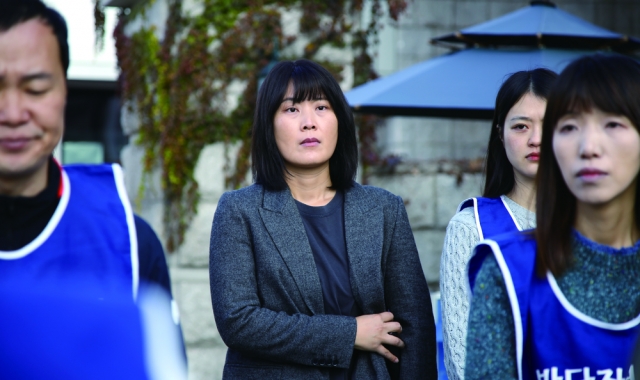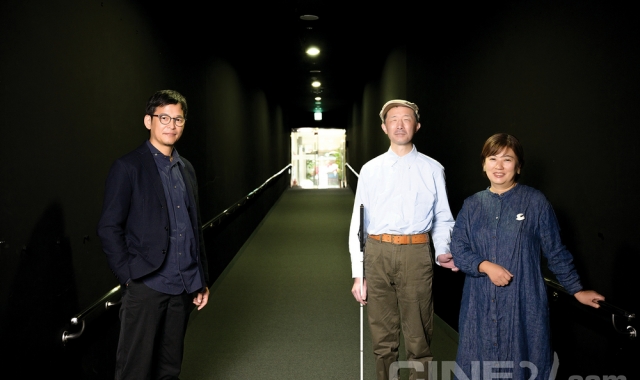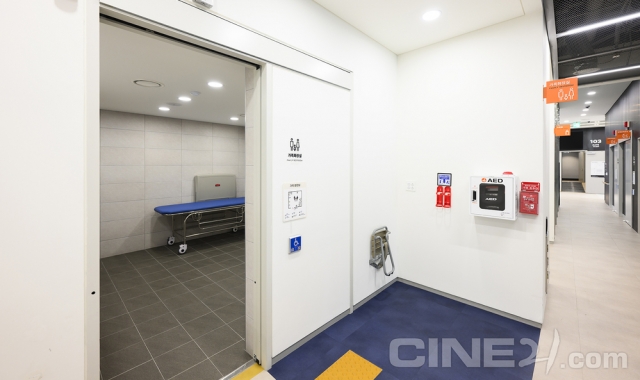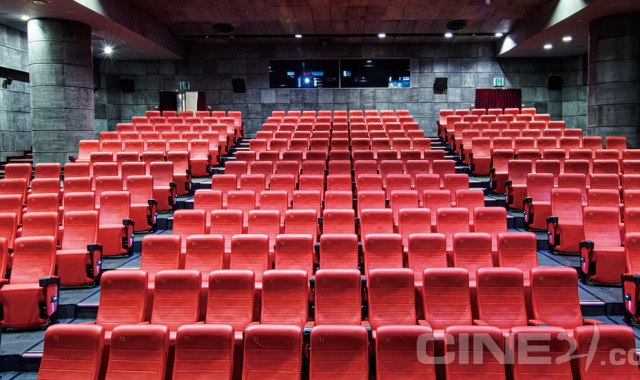
지난 2월6일 씨네큐브에서 있었던 <브로크백 마운틴> 기자시사에 참석했다. 극장은 한국 기자들로 가득 차 있었고, 영화에 대한 기대감이 느껴질 정도의 분위기였다. 그리고 영화는 참석자들을 실망시키지 않았다. 힘이 있었고, 잘 만들어졌으며, 감동적이었다. 또한 극히 미국적이라는 생각이 들게 하기도 했다. 만약 정서적인 측면에서 미국 문화의 현황을 반영한 최근 극영화를 한편만 대라고 한다면, 나는 이 영화를 선택할 것이다.
외국 관객 사이에 앉아 자신의 문화를 이토록 잘 반영한 영화를 보는 것은 이상한 경험이다. <살인의 추억>이 프랑스나 영국 혹은 미국에서 개봉했을 때 본 한국인 교환학생들도 비슷한 느낌을 받았으리라 생각된다. 이상하게 느껴지는 것은 단지 향수병 때문이거나 주변 환경과 스크린 속의 이야기 사이의 대조 때문이 아니라, 이렇게 외국에서의 관점으로 봤을 때 자신의 문화 속 요소들이 훨씬 쉽게 보이기 때문이다. 여러 면에서 나는 미국 밖에서 살지 않았더라면 알지 못했을 다른 관점에서 <사이드웨이>나 <브로크백 마운틴> 같은 영화를 보게 된다.
함께 영화를 본 다른 기자들도 큰 감동을 받은 것 같았다. 그러나 극장 밖으로 나오면서 “미국인이어야만 이 영화를 정말로 이해할 수 있다”는 익숙한 말을 내뱉고 싶은 욕심이 났다. 이런 충동은 그 말을 정말로 믿어서라기보다는 복수를 하고 싶은 갈망 때문에 생긴 것이었다. 러시아에 교환학생으로 가 있을 동안 가수 블라디미르 비소츠키를 좋아한다고 하면, 대답은 늘 “너는 결코 비소츠키를 이해하지 못할 거야. 왜냐하면 너는 러시아인이 아니니까”였다. 한국인들은 그 정도로 퉁명스럽진 않지만, <서편제>나 <왕의 남자> 같은 경우 대부분의 사람들은 어느 정도 한국인과 비한국인을 분리하는 불가해의 벽이 있다는 생각을 하고 있는 것 같다.
외국 관객은 언어능력이나 문화적 지식이 없다면, 영화의 몇몇 디테일들을 놓칠 수 있다는 것은 사실이다(예를 들어 <오아시스>의 시작 부분에 외국 관객은 설경구가 왜 두부를 먹는지 이해하지 못할 것이다). 그러나 <서편제>나 비소츠키에 대한 언급들은 이해의 층위보다는 정서적 반향에서 작동하는 것 같다. “한국인으로서 우리는 그 이야기에 좀더 민감하게 반응한다. 왜냐하면 외국의 억압 아래에 살았기 때문이다”라는 이야기를 때때로 듣게 된다(이렇게 말한 이는 나이키를 신고 인터넷을 서핑하며 자라난 20대 중반의 한국 남성이다).
모든 관객은 자기 배경, 계층, 교육, 성별, 개인적 경험 등등에 의해 영화를 자신만의 방식으로 이해한다. 국적은 단지 그런 요소들 가운데 하나일 뿐이다. 열렬한 연애관계에 있어본 사람들은 그렇지 않은 사람들보다 <이프 온리>를 볼 때 더 큰 감정적인 반향을 일으키게 될 것이다. 부산 출신 사람들(특히 조폭이라면)은 <친구>를 보며 서울 사람들보다 더 감정적인 동조를 느낄지 모른다. 왜 우리는 이런 다른 변별점들보다 국적을 훨씬 더 중요하게 여기게 된 걸까?
러시아인 또는 한국인이나 일본인이 아니기 때문에 결코 어떤 예술작품을 이해하지 못할 거라는 말을 들으면 무엇보다 개인적인 거부나 배제처럼 느껴진다. 그래서 어쩌면 앙갚음으로 <브로크백 마운틴>을 본인은 이해하지만 다른 나라 사람들은 이해하지 못할 영화의 예로 들지도 모른다. 그렇지만 이 영화의 감독은 대만인이고, 영어를 할 때 발음이 확실히 드러나는 사람이다. 갑자기 본인의 주장은 근거를 잃는다.
어쩌면 이것이 예술이 국적을 초월하는 영역일지도 모른다. 어쩌면 이 글에 붙인 제목은 아무런 의미가 없을지도 모른다. 어쩌면 본인은 이 영화를 ‘서울에 사는 미국인’으로 본 것이 아니라, 단지 많은 관객 중 한명으로서 자신만의 독특한 방식으로 경험했던 것일지 모른다.
Watching Brokeback Mountain as an American in Seoul
Last week I caught the press screening of Brokeback Mountain at Cinecube. The theater was filled with Korean journalists and there was a noticeable sense of anticipation in the air. The film did not disappoint ? it is powerful, well-crafted and moving. It also struck me as being extremely American. If I had to name one recent feature that, on an emotional level, reflects the current state of US culture, I would choose this film.
Sitting amidst a foreign audience and watching a film that reflects your own culture so well is a strange experience. I imagine that any Korean exchange students who watched Memories of Murder during its release in France, the UK or the US may have felt a similar sensation. It's strange, not just because of homesickness or the contrast between one's surroundings and the story on the screen, but because from this foreign perspective it is much easier to 'see' the elements of your own culture. In many ways, I watch movies like Sideways or Brokeback Mountain in a different way than I would if I had never lived outside of the US.
The journalists who watched the film with me also seemed greatly moved by it. Yet as we walked out of the theater, I was tempted to utter a familiar line: "To really understand this movie, you have to be American." The urge welled up in me not because I believe it, but more out of a craving for revenge. While living as an exchange student in Russia, if I told people I liked the singer Vladimir Vysotsky, their reply was always, "You will never understand Vysotsky, because you are not Russian." Koreans are not quite as blunt, but when it comes to a movie like Sopyonje or King and the Clown [왕의 남자], most people seem to think that on some level there is a wall of incomprehensibility that separates Koreans and non-Koreans.
It's true that without language skills or cultural knowledge, some details of a film may be missed by a foreign audience. (At the start of Oasis, for example, foreign viewers may not understand why Sol Kyung-gu is eating tofu) Yet the comments about Sopyonje or Vysotsky have more to do with emotional resonance than the issue of comprehension. "As Koreans, we respond more deeply to such stories, because we have lived under foreign oppression," I am sometimes told. (Often the speaker is a Korean in his mid-twenties, who grew up wearing Nikes and surfing the internet)
Every viewer understands a film in a unique way, due to background, class, education, gender, personal experiences, etc. Nationality is only one among these. People who have been in a romantic relationship might watch If Only with more emotional resonance than those who haven't. People from Busan (especially gangsters) might feel more emotional resonance watching Friend than people in Seoul. Why have we come to consider nationality as far more important than these other distinctions?
When I'm told that I will never understand a certain work of art, because I am not Russian or Korean or Japanese, it feels more like a personal rejection than anything else. So I may, in retaliation, seize upon Brokeback Mountain as an example of a film that I will understand, and that people from other countries will not. Yet, the director of this film is Taiwanese, and speaks English with a noticeable accent. Suddenly my claim falls apart.
Maybe this is one area where art transcends nationality. Perhaps the title I gave this piece holds no meaning. Maybe I was watching this film not "as an American in Seoul," but as merely one spectator among the crowd, experiencing it in my own, unique way.






